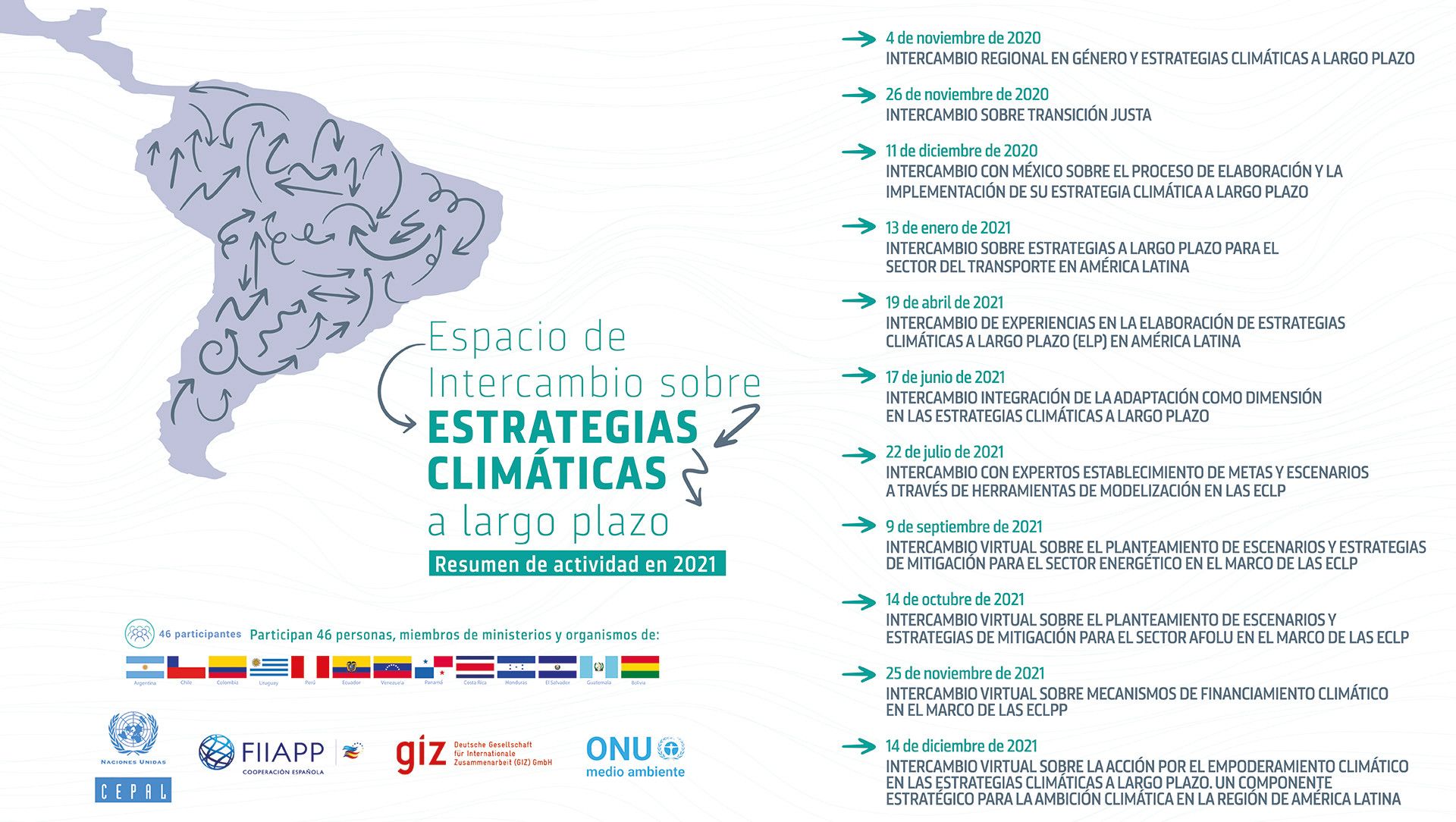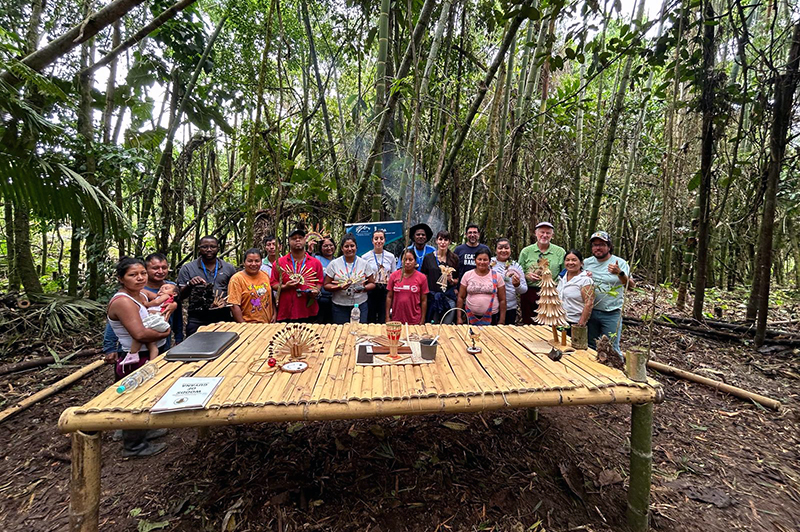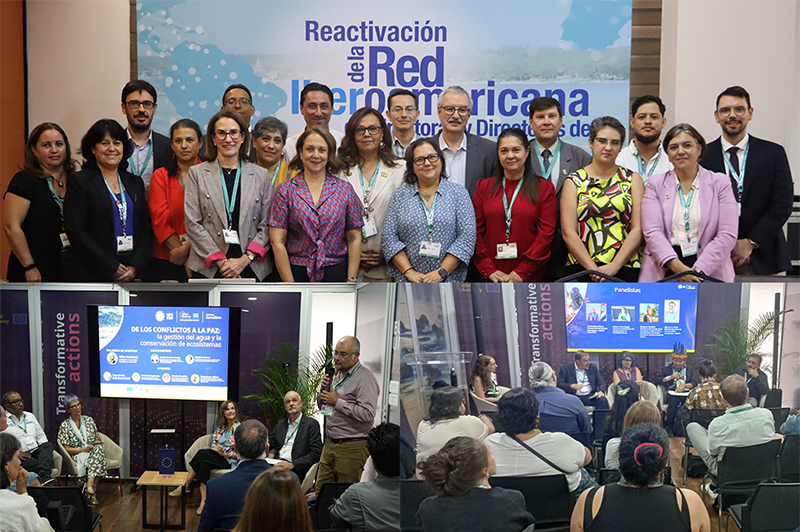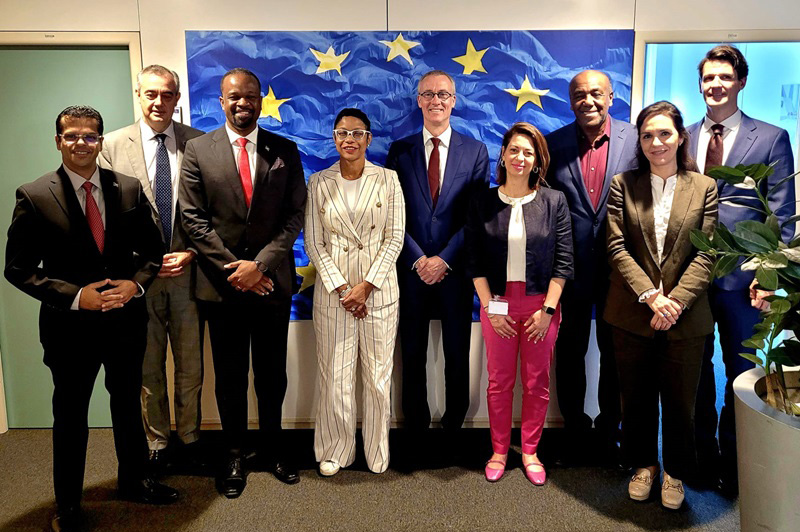The community created to share best practices in the preparation of Long-Term Climate Strategies in the Latin American region, strengthens in 2021 and faces 2022 with new thematic sessions.
10 January 2022 - The exchange space on Long-Term Climate Strategies is consolidated as a platform for sharing lessons learned and cooperation among peers to strengthen climate policies with greater ambition in Latin America. Representatives from 13 countries in the region make up this working group, which has held a total of 11 thematic sessions since its inception in November 2020: Argentina, Chile, Colombia, Uruguay, Peru, Ecuador, Bolivia, Venezuela, Panama, Costa Rica, Honduras, El Salvador, Guatemala.
The initiative arises from the implementation of the Regional Collaboration for transparency and fulfilment of the NDCs and generation of Long-Term Climate Strategies, which is being accompanied by the EUROCLIMA+ programme, through FIIAPP, UN Environment, ECLAC and GIZ. This action has its origin in the 24th Conference of the Parties in Poland (COP24, Katowice), with the joint request of Argentina, Chile, Colombia, Costa Rica and Uruguay to the European Union for support in capacity building to enable the development of their Long-Term Strategies (LTS) for the fulfilment of the NDCs and climate action in cities, aimed at achieving the goals of the Paris Agreement. The aim is to increase capacities for institutional and technical strengthening in modelling, data foresight, development of mitigation scenarios and analysis of vulnerability and climate risk, as well as in the analysis of investment opportunities in climate change adaptation and disruptive technologies that motivate climate planning and action in the region.
The Exchange Space aims to reduce common gaps in the planning and implementation of climate action in participating countries by strengthening capacity with knowledge tools and exchanges. It aims to build capacity for the elaboration of long-term climate strategies (LTS), the creation of a link between LTSs and NDCs, promoting the updating and increased ambition of the 2030 commitments, and the development of capacity in local governments and stakeholders in the territory for the implementation of LTSs and NDCs.
At the operational level, the working sessions are structured around specific themes, which are addressed from countries that have led processes in these areas. In this way, participants can access experiences and lessons learned that may be useful for similar processes in the framework of the design and implementation of the LTCAs and their integration into the set of instruments and public policies of their respective countries -NDCs, Sectoral Plans and Strategies, etc-. The 11 sessions addressed to date are:
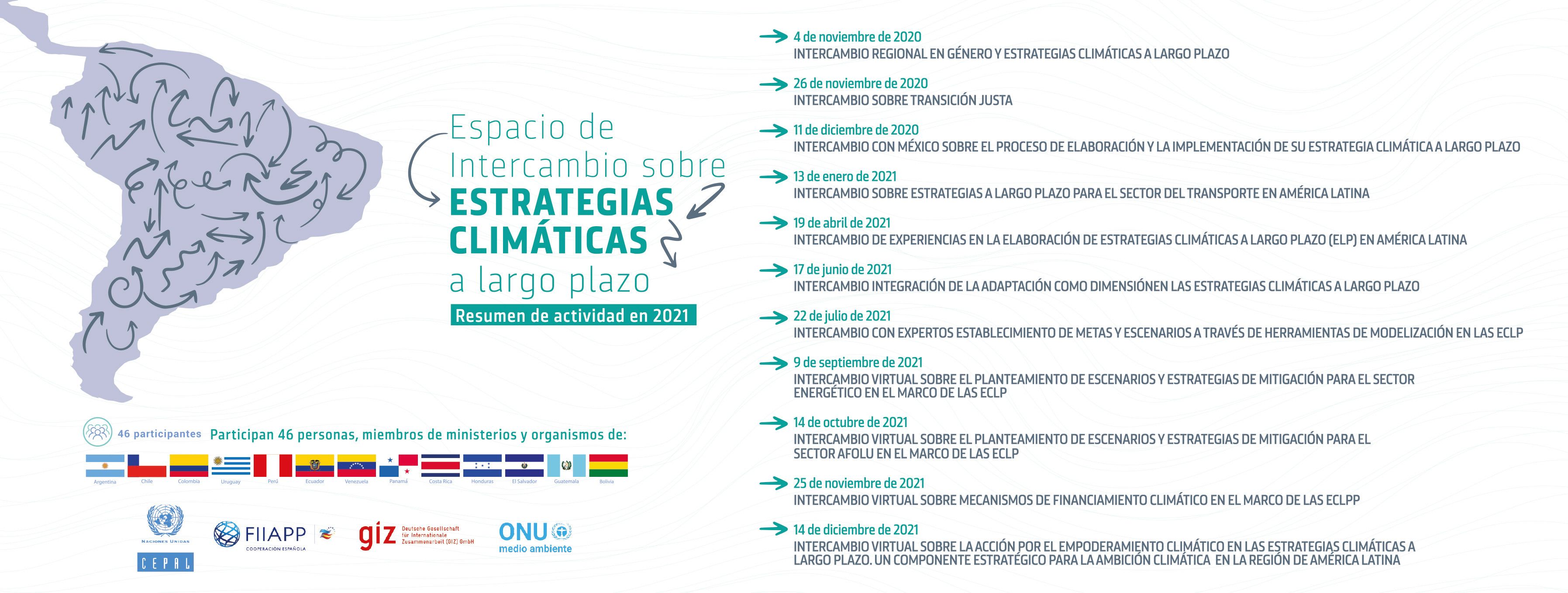
The platform is being hosted by Connect, the virtual training and collaborative work space of the International and Ibero-American Foundation for Public Administration and Policy, and it has a total of 46 practitioners, members of different public entities from the 13 participating countries.
About EUROCLIMA+
EUROCLIMA+ is a programme funded by the European Union and co-financed by the German federal government through the Federal Ministry for Economic Cooperation and Development (BMZ), as well as by the governments of France and Spain through the Ministry of Foreign Affairs, European Union and Cooperation.
The Programme's mission is to reduce the impact of climate change and its effects in 18 countries of Latin America and the Caribbean, promoting mitigation, adaptation, resilience and climate investment. It is implemented according to the "Spirit of Team Europe" under the synergistic work of seven agencies: the Spanish Agency for International Development Cooperation (AECID), the French Development Agency (AFD), the Economic Commission for Latin America and the Caribbean (ECLAC), Expertise France (EF), the International and Ibero-America Foundation for Administration and Public Policy (FIIAPP), the German Society for International Cooperation (GIZ) GmbH, and the UN Environment Programme (UNEP).
Contact
Daniel Fernández This email address is being protected from spambots. You need JavaScript enabled to view it.

